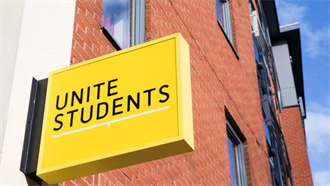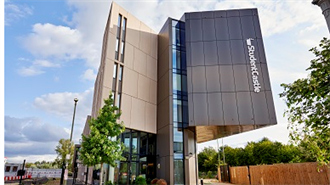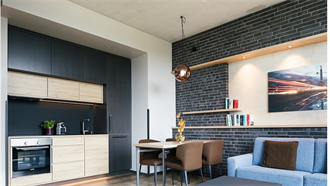The growing importance of ESG considerations for investors and the ongoing debate about the future of the office were among the main highlights of this year’s annual thought leadership report by international law firm CMS.
The survey, which was carried out in the midst of the first lockdown following the outbreak of the Covid-19 pandemic, also explored sentiment among investors and real estate professionals on the ‘S’ in the ESG mix, looking at how the crisis was impacting the community and social values.
In a Q&A with PropertyEU, Arnout Scholten, partner in CMS’s Real Estate & Construction Practice Group and co-head of the global CMS Real Estate & Construction Practice Area Group, and Hein van der Meer, partner and head of the Real Estate & Construction Practice Group in the Netherlands, discuss the key findings of this year’s CMS thought leadership survey, which was carried out among over 2,200 respondents in France, the Netherlands, Germany, Poland, the UK, Czech Republic and Singapore.
Why did CMS choose to focus its annual Thought Leadership survey on ESG this year?
‘ESG – Environment, Social, Governance – is currently very much on the agenda, particularly for the real estate sector, as the built environment is one of the major contributors to climate change but also influences our communities and social values. When planning the report in early 2020, we thought it would be interesting to see what investors and real estate professionals as well as end-users across Europe were doing in reference to ESG and how it impacts various stakeholders. We started to conduct our survey in March, just when almost all countries were going into lockdown. It was evident that we were entering a totally different world. It was interesting to learn about the perspectives and future expectations across a broad industry spectrum, especially in regard to the community and social values. Usually the ‘social’ in ESG is overlooked or misunderstood, so we wanted to explore that better and also get an idea of the actual impact of the pandemic.’
The survey was done in the middle of lockdown so what was the mood of real estate professionals?
‘We asked our respondents about the short-term outlook and 42% were pessimistic. That number was actually not that bad, considering we were all in the midst of the lockdown. It was also interesting to look at the different asset classes, where there were some obvious winners and losers. We’ve been talking about logistics for a while and this was the most sought-after asset class, with 84% of investors rating it as attractive. However, at the other end of the scale, retail unsurprisingly only gained the favour of 3% of real estate professionals, the lowest rate we have ever recorded.
Overall, though, the real estate sector is no different from others. For many, it is a confusing time and our ability to make sense of all the competing priorities, claims and counter-claims, is becoming more complex. For example, the long-term purpose of the office is, for some, in question; the safety of the elderly in care homes is in doubt; shopping centres face an existential threat; while aviation – integral to the retail, leisure and hospitality sectors it supports – is on its knees like never before.’
What is driving the rising importance of ESG?
‘We invited representatives from different groups of stakeholders to participate in our survey. They comprised over 500 global institutional investors, over 250 senior RE professionals and 1,500 senior occupiers - from SMEs to multinational companies - from France, the Netherlands, Germany, Poland, the Czech Republic, UK and Singapore. Interestingly, it turned out that the institutional investors are the major driving force behind ESG. For example, sustainable buildings were found to be 'very important' by 77% of institutional investors, yet only 32% of RE professionals considered them to be important.
Also, during personal interviews with ESG executives within the investment sector, some of them mentioned that they can vote down a transaction at the investment committee stage if it does not meet ESG criteria. This is a clear sign that institutional investors are going to insist on this factor in the future. In turn, it will be longer journey for the RE industry as only 25% of sector respondents acknowledged that it needed to do better when it comes to environmental performance, sustainability, and diversity.’
How much has Covid-19 accelerated the trend towards ESG? Is there any risk that the pandemic might negatively impact this drive towards improved ESG standards?
‘On the contrary, we believe - and our report highlights this - that due to our current situation with the pandemic and related restrictions, ESG and social purpose are moving even more centre stage. The majority of our respondents believe that ESG is already having a transformative effect on both the principles and mechanics of real estate. In a post-Covid-19 world, 92% of investors said they would invest more into companies that have a strong ESG strategy. The pandemic also appears to have strengthened the commitment among occupiers: almost two-thirds (62%) claim they would focus on ESG, when considering future business decisions.’
Were there any significant regional trends identified around expectations for a continuation of home working versus returning to the office?
‘With the second, stronger wave of the pandemic we now know the return to the office in the pre-pandemic mode will not be possible for some time yet. When we conducted our research during the summer months, the mood and expectations were quite optimistic, especially in France, Germany, the Czech Republic and Poland, where people started to return to the office in August and September. Interestingly, the Netherlands, Singapore and the UK were the least optimistic with the highest number of people not expecting a return until 2021. The office itself has been under the spotlight for some time already, however the pandemic and the new rules are accelerating some changes and it really brings into focus the challenges that we are facing. Already before 2020, we were talking about the way we use our offices.
Also, the office sector faced some pressure from the different ways people started to work. Today, with most of us working from home, we are reminded of all the things we liked about spending time in the office. Mostly the human contact and interaction with our colleagues, the energy one gets from being together. As most of the surveyed occupiers preferred the blended office/home approach as the best mix for motivation and productivity regardless of the region, we expect that this hybrid model will prevail.’
The full CMS Real Estate Reset report can be accessed here




































